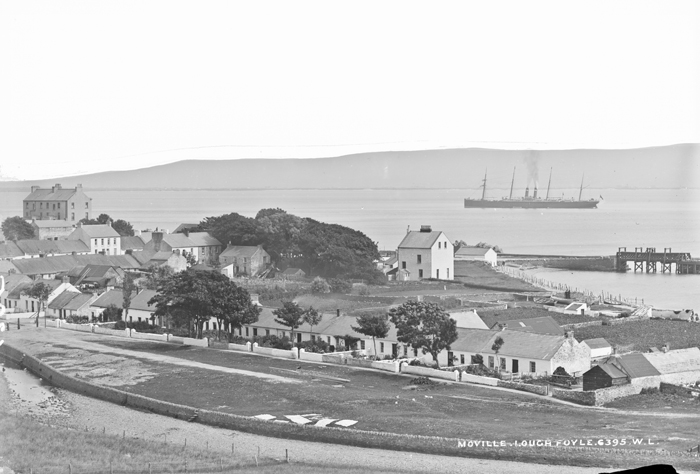Partition creates confusion over fishing rights in Lough Foyle
Moville, 13 September 1923 - What are the rights of Free State fishermen to make a living from the waters of Lough Foyle post-partition? This is the question at the core of a case that has been heard on the 11th of September at Moville District Court in Co. Donegal.
A case for the prosecution was brought by fishery inspector James Brown. The case was challenging the validity of the lease issued on 20 January 1919 to the Foyle Fishery Company, Sir Charles Petrie and others. The crews of three boats were summoned for using a net with the purpose of extracting salmon from the lough without license and fishing.
In the course of the proceedings, a letter was submitted from the Free State’s Department of Agriculture on behalf of the Ministry of Fisheries stating that the result of an understanding with the Imperial authorities meant that, for the present, Boards of Conservators operating partly in Northern Ireland and partly in Southern Ireland would continue to function as hitherto.
The present lessees exercise rights under a 31 year lease that is dated 20 January 1919. The lease being taken out from the Honourable Irish Society acquired its rights in the river and lough to a charter from the Crown in the 17th century.
The court heard, however, that recent political and constitutional
changes have made a serious difference. The legal representative
for the defendants, Mr. Conaghan, informed the court that the
Treaty, in doing away with the parliament act as far as the 26
counties was concerned, meant that Lough Foyle was not vested in
two different authorities, and it was now very hard for men who
were living in Donegal and in the Free State to either make a
living or even know what the right thing to do was.
Mr. Conaghan added that he held a letter to the effect that the
license was to be paid to the Ministry in Dublin.
The complexity of the issue was acknowledged by Mr. W.S. McDermott, prosecuting, who said that some of the fish that passed into Donegal were bred in rivers in the Six Counties and some in the rivers in Donegal. Unless, he said, the two States co-operated and worked together he did not see anything but ruination of the fisheries in the region. Mr. Dermott added that the Conservators of the lough had no objection to money being paid to the Free State authorities.
[Editor's note: This is an article from Century Ireland, a fortnightly online newspaper, written from the perspective of a journalist 100 years ago, based on news reports of the time.]





















